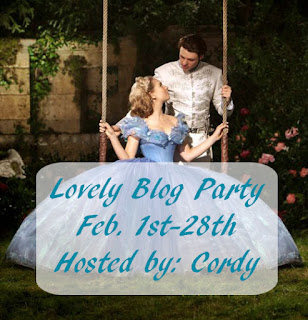Possibly one of the most beautiful renditions of the famous Arthurian love triangle ever written. First Knight is a family favorite and has every element you would want in a film about Camelot. This had a more realistic and historic storyline-similar to how Ever After was done-and steers away from the magical aspect; Merlin does not appear in the story. While sorcery may be out of Camelot, no small amount of battles, swordplay, famed knights around the equally famous Round Table, maniacal villains, treachery, kidnapping, and of course the primary characters of noble, but aged King Arthur, roguish Lancelot, and beautiful Guinevere takes it place.
After years on the throne of Camelot, King Arthur is now facing a harder battle. His age and lack of a spouse, which makes for the lack of an heir. He has brought peace and prosperity to Camelot, but peace is never certain anywhere. His former First Knight, Maleagant, has betrayed all that Arthur has instilled in his knights and his kingdom. Maleagant has begun to raid small towns and villages in hopes to gain power to eventually take over Camelot.
Refugees left over from Malegant's attacks travel to find safety in the small island kingdom of Leonesse which is partially ruled by the high spirited Princess Guinevere. Beautiful, but strong willed, Guinevere shows no fear in Maleagant's cruelty and will do whatever it takes to protect her kingdom. Even it means marrying a king twice her age. However, Guinevere has always put her duty above herself. She agrees to accept King Arthur's proposal of marriage, in the hope that by uniting Camelot and Leonesse, both kingdoms can withstand and take down Maleagant.
Meanwhile, a handsome swordsman, simply known as Lancelot makes his away across the countryside, living by his sword. He earns money by entertaining people not just with his brilliant skill and talent, but also his charisma and kindness. A loner since childhood, Lancelot lost everything as a boy when his family was killed in a raid by Maleagant himself. Since then, Lancelot has separated himself from the world in order to avoid heartbreak and loss.
While Guinevere is on her way to Camelot to prepare for her wedding, she and her party are attacked by Maleagant. She barely escapes, but is rescued by Lancelot who was just passing through the forest. Withholding who she truly is, Guinevere becomes intrigued by this mystery man who is knowledgeable in survival and wonders why, with so much talent, he isn't a knight. Lancelot is charmed by this young woman who seems so capable to fight for herself. Before they part, Lancelot promises that he and Guinevere will meet again. However, Guinevere has more things on her mind.
Lancelot's promise to meet again comes true in a matter of days. As Arthur and Guinevere begin to find love for one another through the love of their countries and their people, Lancelot's love for Guinevere becomes his one true passion. Stronger than his skill with his sword, but more dangerous than Camelot's worse enemy. Time and again, due to Guinevere, Lancelot continues to appear most unexpectedly, impressing Arthur and the Knights with his quick thinking, daring and his swordplay.
Soon, Guinevere finds herself conflicted for her feelings for Lancelot and Arthur. She loves Arthur out of duty, but loves Lancelot out of true passion. After Lancelot saves her from Maleagant's kidnapping, he is made Arthur's First Knight. Now Guinevere has both men in her possession and her once iron will that has ruled her whole life begins to crumble as she wrestles with her fiery love for Lancelot. A love that could destroy all of Camelot.
This movie is so so beautiful! I mean, that's the only word to describe it! It has your typical villain who is out to to destroy Arthur and Camelot (because that's the plot to all Arthurian stories, right?), a wise, formidable king, a loner who is also moral and compassionate, and a very complex, three dimensional young woman who doesn't stand around waiting for things to be done. With the rich costuming, beautiful settings and wonderful score, there is a simplicity in the story. It's about these three legendary figures and how war brings them together, but peace can tear them apart. Like with Ever After, the reality of the plot makes it so intriguing that one would wonder if there is some truth behind the mythology.
May God grant us the wisdom to discover right,
the will to choose it,
and the strength to make it endure.
- Arthur's Round Table prayer





































